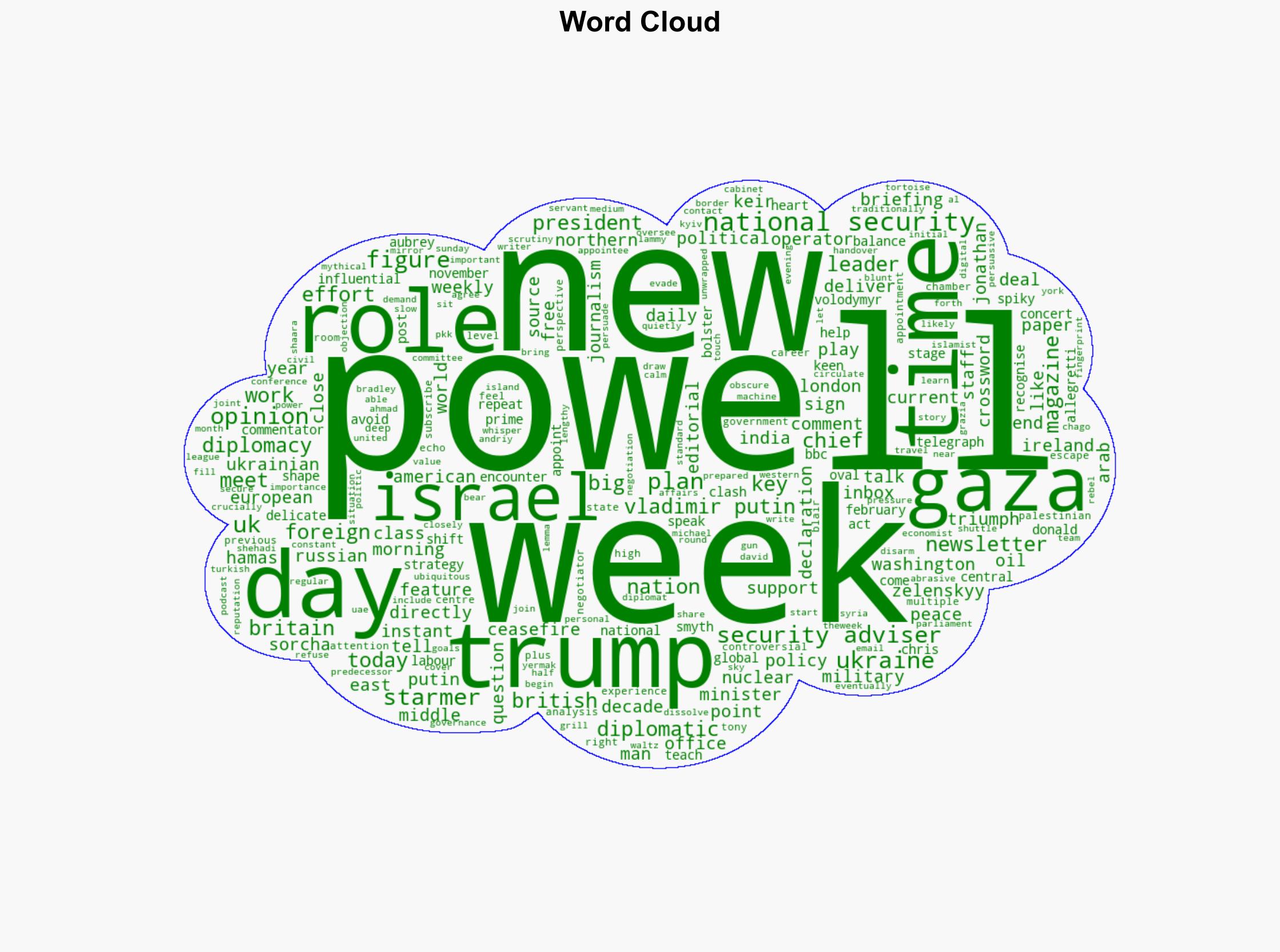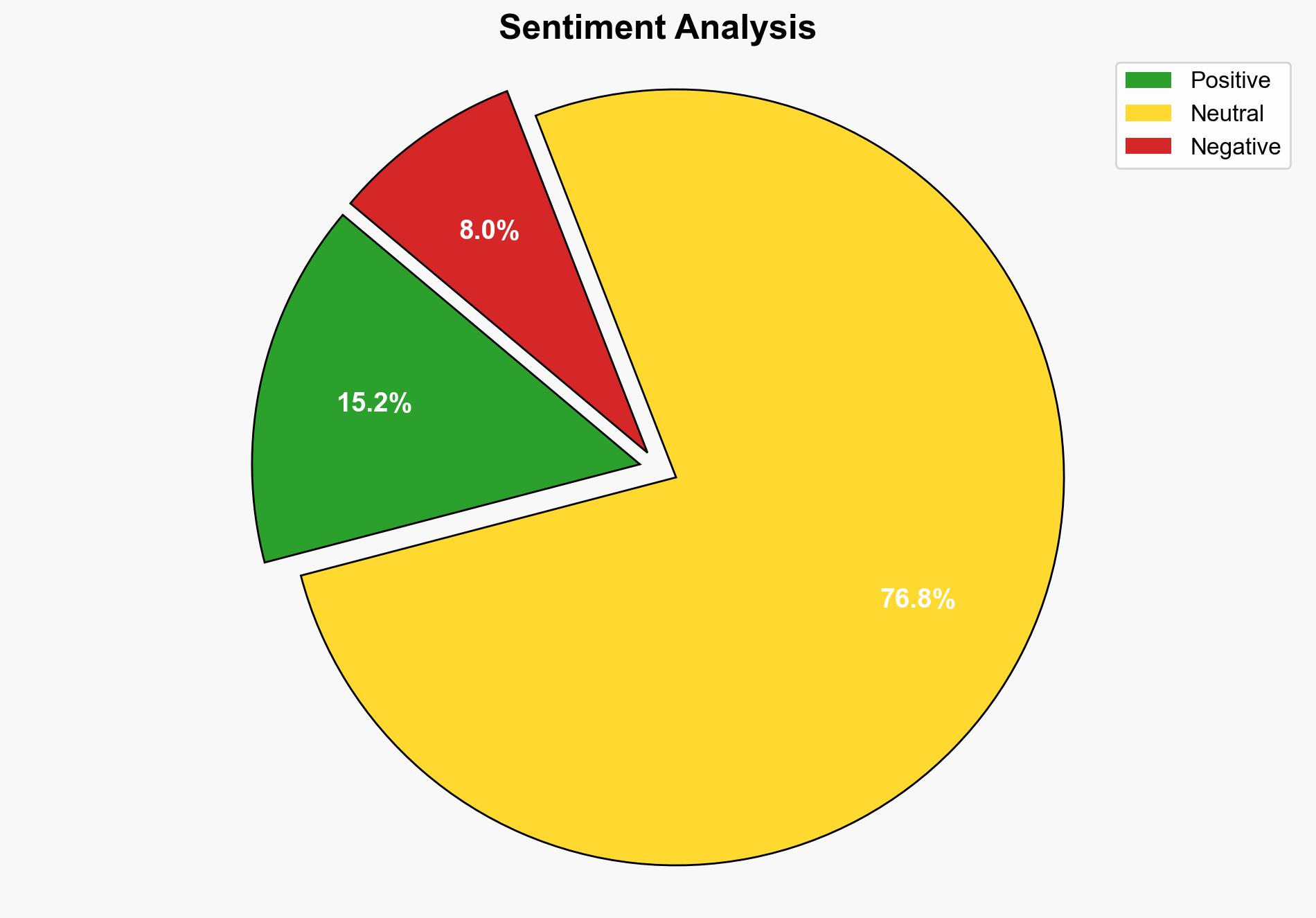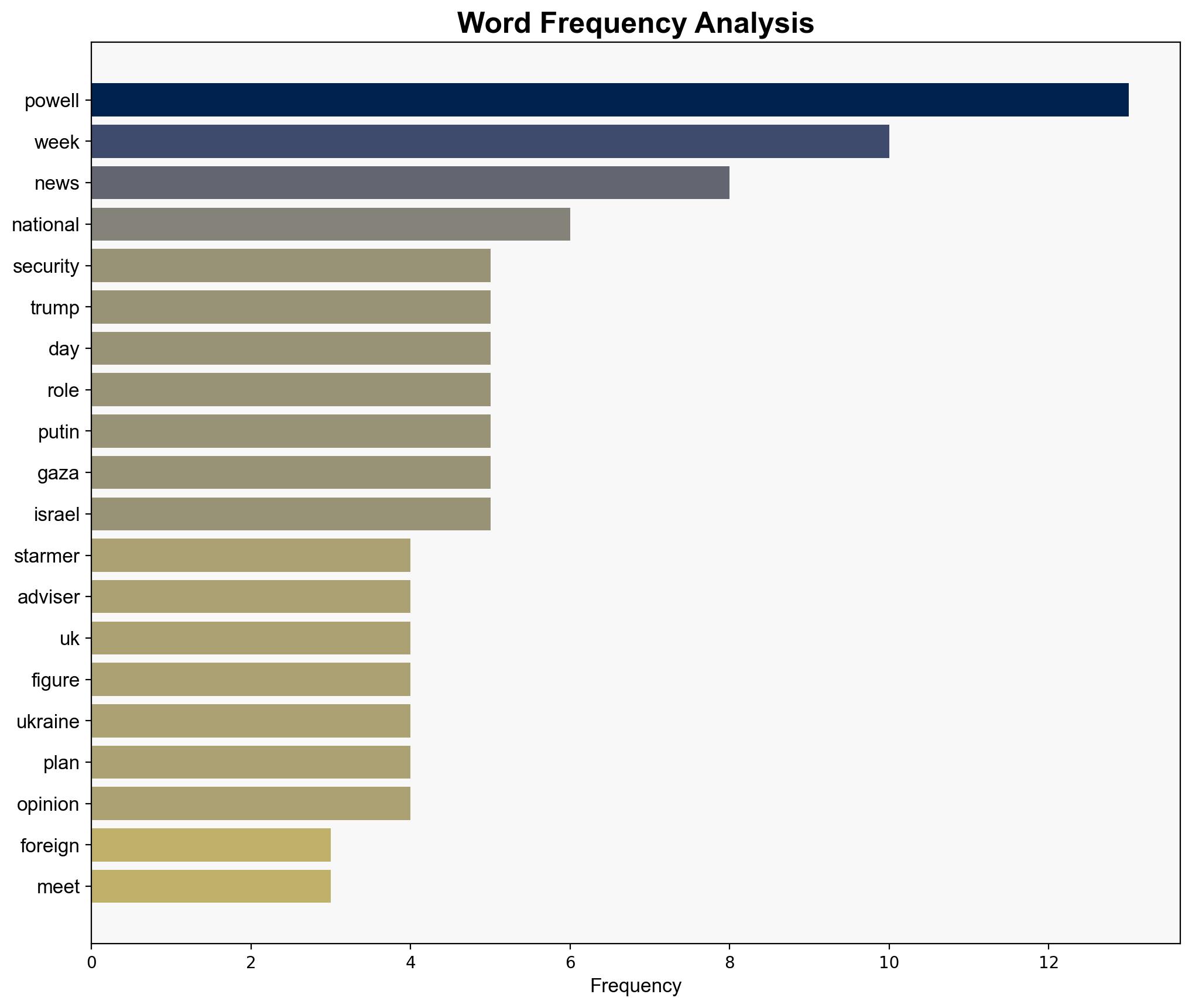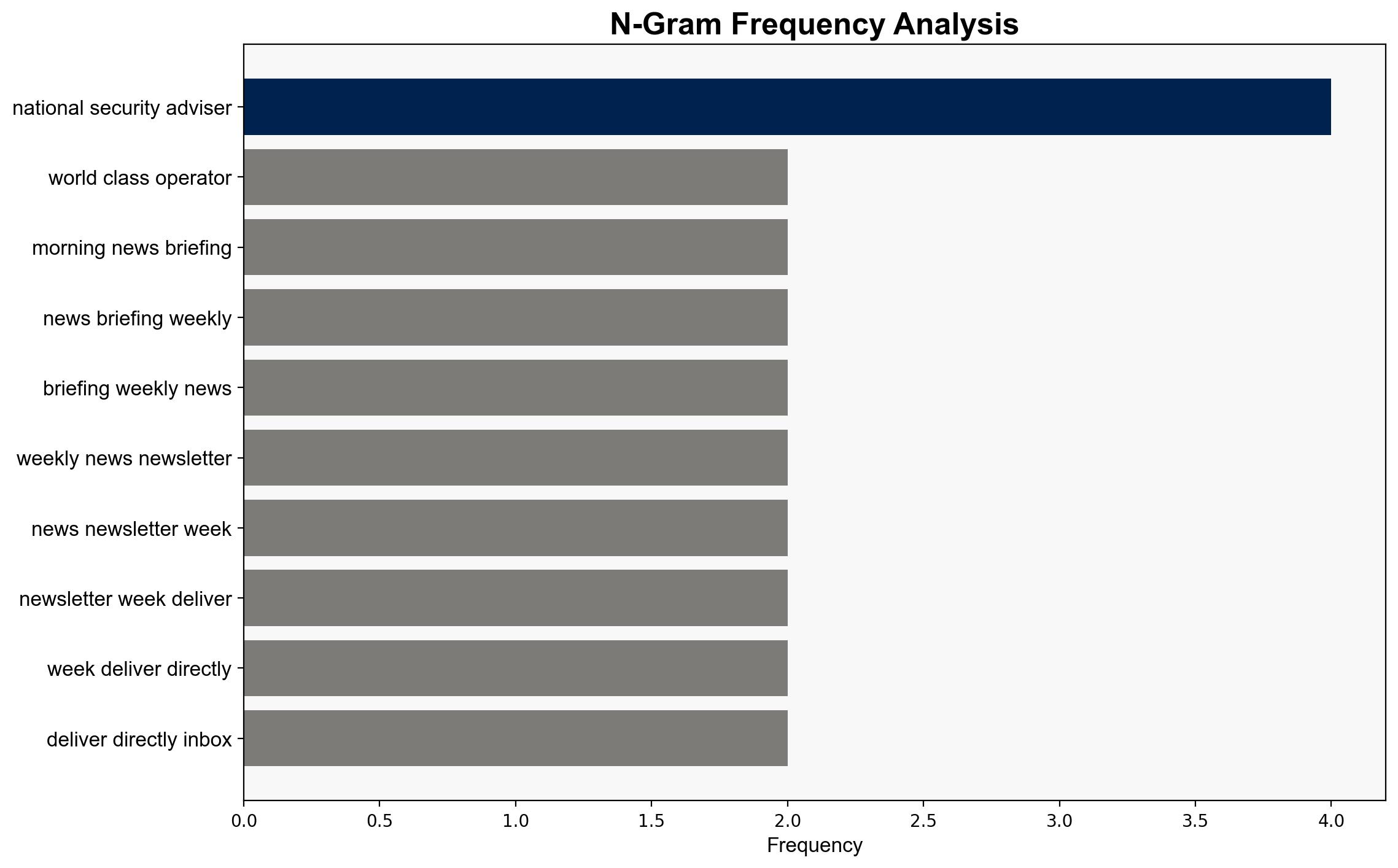Jonathan Powell who is the man behind Keir Starmer’s foreign policy – The Week Magazine
Published on: 2025-08-18
Intelligence Report: Jonathan Powell who is the man behind Keir Starmer’s foreign policy – The Week Magazine
1. BLUF (Bottom Line Up Front)
Jonathan Powell’s influence on Keir Starmer’s foreign policy strategy is significant, potentially reshaping the UK’s diplomatic posture. The most supported hypothesis is that Powell’s appointment is a strategic move to leverage his diplomatic expertise to enhance the UK’s global influence, particularly in conflict resolution. Confidence level: Moderate. Recommended action: Monitor Powell’s diplomatic engagements and assess their impact on UK foreign policy.
2. Competing Hypotheses
Hypothesis 1: Jonathan Powell’s appointment is primarily aimed at leveraging his extensive diplomatic experience to strengthen the UK’s role in international conflict resolution, particularly concerning Ukraine and the Middle East.
Hypothesis 2: Powell’s role is more politically motivated, serving as a strategic move by Keir Starmer to consolidate power within the Labour Party and align foreign policy with broader political goals.
Using ACH 2.0, Hypothesis 1 is better supported due to Powell’s history of successful diplomatic negotiations and his involvement in high-stakes international discussions, as indicated by his interactions with key figures like Volodymyr Zelenskyy and Michael Waltz.
3. Key Assumptions and Red Flags
Assumptions include Powell’s ability to navigate complex international relations and the expectation that his diplomatic style will be effective in current geopolitical climates. A red flag is the potential lack of transparency due to Powell’s political appointment, which could obscure motivations and outcomes. Additionally, the reliance on Powell’s past successes may overlook current geopolitical dynamics.
4. Implications and Strategic Risks
Powell’s influence could lead to a more proactive UK stance in international diplomacy, potentially increasing the UK’s involvement in conflict zones. This may strain resources and heighten geopolitical tensions, particularly if diplomatic efforts are perceived as biased. The risk of misalignment with EU and US policies could also arise, affecting transatlantic relations.
5. Recommendations and Outlook
- Monitor Powell’s diplomatic initiatives closely to assess their alignment with UK strategic interests.
- Engage in scenario planning to anticipate potential geopolitical shifts, focusing on best-case (enhanced UK influence), worst-case (diplomatic isolation), and most likely (incremental influence increase) scenarios.
- Strengthen intelligence-sharing with allies to ensure coordinated efforts in conflict resolution.
6. Key Individuals and Entities
Jonathan Powell, Keir Starmer, Volodymyr Zelenskyy, Donald Trump, Michael Waltz, Andriy Yermak, Vladimir Putin.
7. Thematic Tags
national security threats, diplomacy, conflict resolution, geopolitical strategy





